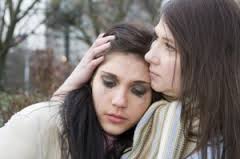Helping a Loved One through Bulimia Treatment and Recovery
Hardships of Bulimia
According to the National Eating Disorders Association, bulimia is a serious and potentially life-threatening eating disorder. Bulimia is characterized by a cycle of bingeing and compensatory behaviors, which include self-induced vomiting to undo or compensate for the effects of binge eating.
Bulimia is a devastating eating disorder that will have numerous negative health effects on your loved one’s life. Most often, people with bulimia will binge eat, consuming way too much food for their body to handle, and then they will immediately go and regurgitate that food. If your loved one is doing this, then they can cause damage to their esophagus and they will deprive their body of the nutrients it needs to stay healthy.
Moreover, if your loved one continues to binge eat and then throw up their food, they can cause damage to their entire digestive system, and they may begin to have electrolyte imbalances. If your loved one gets to the point where that have electrolyte imbalances they risk the chance of developing heart problems, and they can cause permanent damage to their organs.
Ways to Help a Loved One in Bulimia Treatment

An eating disorder is very tough on the emotional and well being of someone who is suffering. They need your support in their recovery.
Bulimia treatment is the most effective when the signs of bulimia are detected early and the person receives treatment. It is important if you notice that your loved one is showing signs of bulimia that you help them to get treatment before their eating disorder becomes worse.
According to the National Eating Disorders Association, one sign that may indicate bulimia is, evidence of binge eating, which may include the disappearance of large amounts of food in short periods of time, or finding containers or wrappers indicating the consumption of large amounts of food.
Another sign of bulimia is the evidence of purging behaviors. If your loved one is making frequent trips to the bathroom after meals, or if you notice signs or smells of vomiting, or if you see packages of laxatives or diuretics frequently, your loved one may have bulimia.
If you notice signs of bulimia you should sit down in a relaxed environment with your loved one and talk with them about it. You do not want to lecture them or make them feel bad. Most people suffering from eating disorders, such as bulimia, have a distorted self-image of their self and when you talk to them about their disorder, you should be understanding and listen to what they have to say. To help your loved one, it is your best option to get them treatment, and you should research different options and make sure to find a treatment program that they feel comfortable with.

